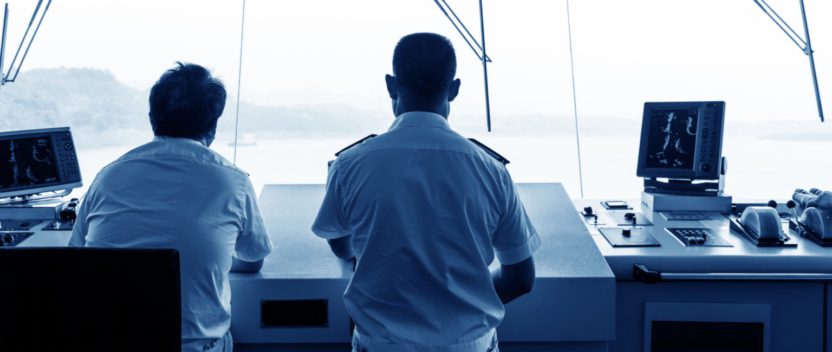Creative destruction and value creation
When Gerd Leonhard took the stage at the ShipServ Smart Procurement event earlier this year, he was on a mission to garner a reaction from his audience. This he did, not by talking about unmanned ships or big data, but by sharing several examples of what happens to industrial sectors when they believe their exceptionalism will shield them from disruption.
As a Futurist, paid to predict ‘hard futures’ where technology, society and business collide, he is used to tough rooms, but he’s neither irritatingly young nor inexperienced, with plenty of real-world business experience under his belt. And as Leonhard makes clear in subsequent conversations, disruption need not be a death sentence for shipping, though it is a warning that without some truly innovative thinking, the collateral damage could be considerable.
In the first of two pieces continuing the theme of disruption and why it matters to owners, managers and charterers, we discuss abundance, relationships, collaboration and ownership.
Perhaps the most important lesson from a conversation with Leonhard is that shipping should not make the same mistakes as other industries which ignored technology risk and barely live to tell the tale.
He points out for example, that disruption is only the start of a process which logically includes constructing something new – added value is about more important than skimming the easy wins off the top. “There has to be a happy medium between destruction and construction and it is much clearer how to organise value around future models rather by their disruption,” he says.
As a result, he says the biggest disruption to shipping will likely be around the efficiency of logistics, optimising vessel performance, the greater use of robotics and energy usage. All pretty positive, except perhaps for a final element, which will be to make the market more transparent.
The abundance of connectivity, data and options will have the effect of making services much easier to compare, forcing owners to create brands that stand for something beyond the ability to ship stuff or be a port that receives them. Just as in the consumer market, the human rhythms we use to make choices based on emotions, perceptions, value and trust, will become more important for businesses who wish to remain trusted brands.
“Shipping and ports are maybe more protected because it’s harder to get in there, but it doesn’t mean they are safe. When [the disruptors] figure it out it will be much bigger than you have ever thought.” The ‘easy’ targets – music, film, television and publishing might have been just that, but the harder nuts are cracking too.
“The next step is industries like banking which are partially digital and partially physical. Banking will be completely disrupted and the people doing this do not come from banking, they come from software and technology. And that is a lesson that we can learn, what is going to happen to banking will happen to insurance, it is already happening with education and then will happen to hardcore elements like government and the military.”
Part of the challenge of the new economy is the focus on sharing and collaboration – something that happens generally to shipping in extremis. Even customers and suppliers prefer to keep confidentiality at the heart of their business dealings. It doesn’t sound like there is much scope for improvement, but Leonhard says the same comparisons can apply.
Any business built on friction has an interest in keeping this friction alive because it depends on no-one knowing everything – the model not just for financial services but for shipping too. As soon as that wall is breached, customers seek alternatives in droves.
“Eventually we find out that we’re overpaying or poorly served and we’re pissed off and we leave – that is just totally unavoidable. I think in any kind of service like this, the client now demands to see stuff as it happens and not after it happens and that’s not going to be any different here. I think that whoever does that first and right earns the trust, even if you charge more.”
It’s telling that Leonhard thinks price is not a barrier; that brand quality and delivery can be more important in driving the change process. The result, which he calls ‘hyper collaboration’ means companies will do whatever is necessary to sustain their businesses. “The US Postal Service and UPS teamed up three years ago after 15 years of fighting about distribution and now they are happily successful,” he adds.
The rather bigger issue is that not enough shipping companies – their customers or suppliers – see the threat that disruption poses in the long term. Or if they do, they tend to deploy 20th century tools for 21st century challenges.
Understandable when one compares streaming movies or music to millions of devices with the business of hauling containers or iron ore. One is a new business paying fractions of cents, the other an old one where good are shipped globally for a few dollars per TEU or tonne. In the new one, the upside potential is untapped, in the old one, the downside is regularly plumbed.
One mistake is to continue believing that margins will be maintained and formats unchallenged, Leonhard says, adding that it’s normal to reject a new, unfamiliar model for the comfort of the old one. “Most of the time, it’s just that you haven’t discovered the way for the new model to be valuable enough yet. You’re looking at what you used to make and what you’re going to make and you don’t see the opportunities to the left and right of that.”
Another issue is that ownership is everything – in fact it’s a sacred cow in shipping. But customers are increasingly interested in access, able to do deals and collaborate freely, which leaves the traditional ownership model looking somewhat more cumbersome and risky.
Right now, he says, the ship is the system that the owner builds and customers can opt in to using occasionally. The future he thinks will be much more about an ecosystem of inter-connected solutions, reflecting that partners and suppliers are constantly changing. “Your business model has to revolve around being inter-dependent,” he declares.
Perhaps the biggest issue is that with the best will in the world, many CEOs see new technology as something that their children use, rather than something that threatens or drives their business. The management team might see it differently but recent history is strewn with examples of leading companies that failed to evolve.
Treating technology as novelty is ‘a suicide mission’ says Leonhard and the real failure is to focus on hardware or software rather than to understand the transformative process.
“It will not take as long as it used to take for change to happen and you’re not safe just because you have good relationships and you have invested billions of dollars into tankers,” he says. New companies might not come to the market with relationships in place, but they are better at using technology to acquire them.
He cites the oil industry’s collective move to write down $3trn worth of physical property as a prelude to the end of the fossil fuel period. All the big oil companies are looking at how they can manage this in an orderly way, in so doing avoiding the panic that ensues that comes when you realise you’ve turned up at a fight with the wrong weapons.
The same, ultimately, will happen in the pharmaceutical industry, when genetic engineering reaches a point when there is no market for pills and potions that sustains millions of patients, jobs and shareholders.
“OK, if that actually works, it will take a while but when it does, it will wipe out an $8trn a year industry. To get past that, you will have to start thinking not just about what works today, but what will work tomorrow. And that probably won’t look very much like what works today.”
Ends


